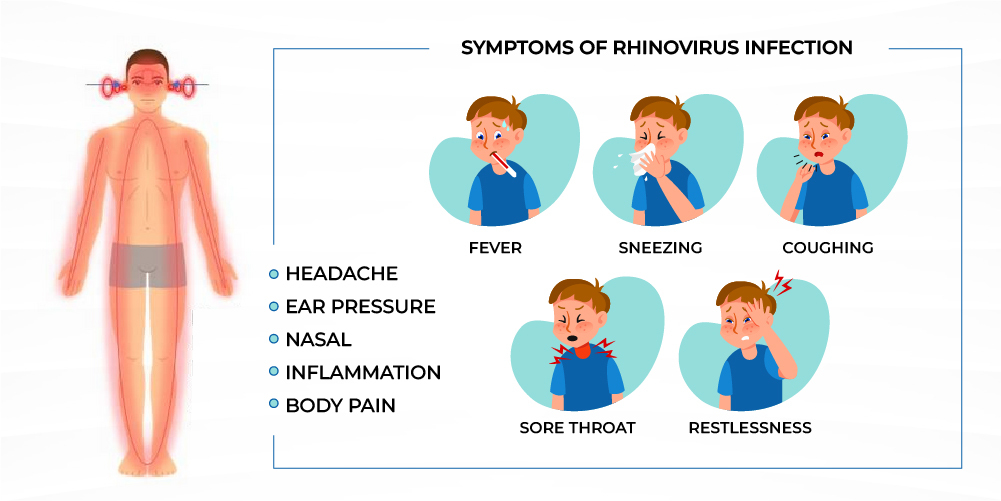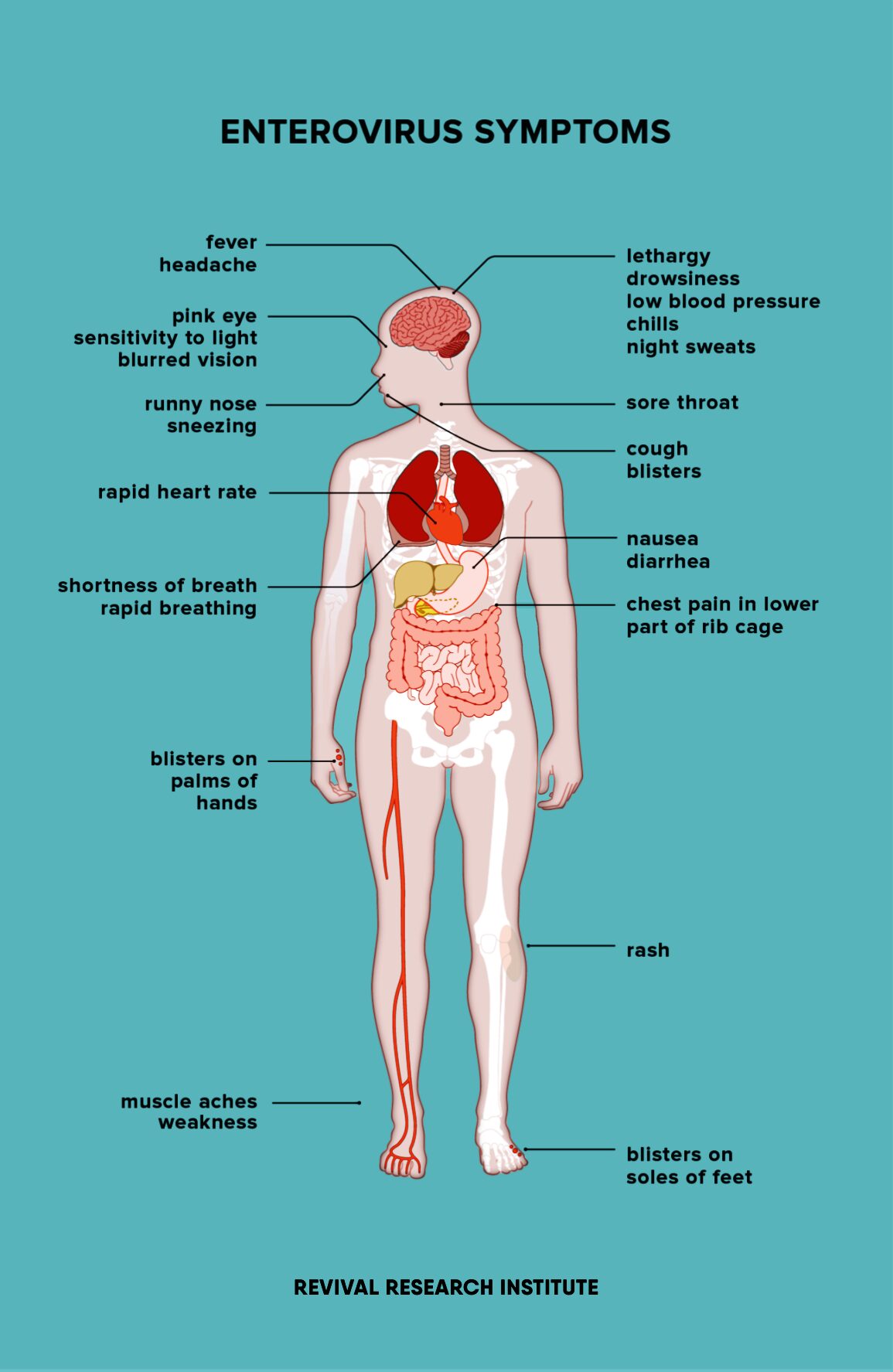Updated on February 2, 2024
 Introduction
Introduction
In the vast world of viruses, there is one microscopic player that often lurks in the shadows and poses a significant impact on human health. It is termed as rhino enterovirus that belongs to the member of enterovirus family. A health advisory has been issued for people with severe respiratory illness who have tested positive for rhinovirus and enterovirus.
Respiratory illness is something that should never be ignored no matter how mild it is. Consider participating in the ongoing clinical trials being conducted to contribute to advancements in respiratory health.
In this blog, we will delve into the world of rhino enterovirus and learn more about its symptoms, transmission, treatment, and prevention.
What is Rhino Enterovirus?
The rhino enterovirus is a newly recognized human pathogen. As it belongs to the enterovirus family it is closely related to the common cold virus, rhinovirus. Rhinoviruses cause over half of upper respiratory tract infections (URTI), establishing them as one of the most prevalent infectious agents in humans globally. Enterovirus family comprises a diverse group of viruses, that includes well-known culprits like poliovirus, coxsackievirus, and echovirus.
Rhino enterovirus is a single-stranded RNA virus with a particular affinity for the respiratory tract. This virus displays a remarkable ability to adapt and evolve, making it a resilient foe in the world of infectious agents.
Symptoms of Rhino Enterovirus

• Runny or stuffy nose
• Sore throat
• Cough
• Sneezing
• Mild body ache
• Congestion
In some cases, people may also experience a low-grade fever and fatigue. In severe cases rhino enterovirus has also been thought to play a role in exacerbating asthma symptoms leading to hospitalization. This highlights the importance of understanding and addressing the impact of rhino enterovirus on public health.
Also Read: Asthma Exacerbation Treatment & Management
How Long Does Rhino Enterovirus Last?
The symptoms for rhino enterovirus infection last for 7-10 days and gradually subside without any specific treatment. However, individuals with compromised immune systems, asthma, or respiratory ailments may experience severe complications like bronchitis or pneumonia.
How Does Rhino Enterovirus Spread?
The virus spreads through:
• Airborne transmission: Virus spreads through droplets when an infected person sneezes or coughs.
• Fecal-oral transmission: Contact with an infected person’s feces, especially during diaper changes or assisting with toilet use.
• Direct contact: For instance, kissing someone who has the virus.
• Shared items: Transmission through sharing eating utensils and cups.
• Surface contact: Touching contaminated surfaces like doorknobs or toys.
 How is the Rhino Enterovirus Treated?
How is the Rhino Enterovirus Treated?
Currently, there is no vaccine available for safeguarding against rhinovirus or enterovirus, and there are no specific treatments for illnesses resulting from these viruses. In most cases, individuals will naturally recover. To alleviate symptoms an individual can:
• Take over-the-counter medications such as pain relievers and non-steroidal anti-inflammatory drugs to manage symptoms such as fever, body ache, and congestion
• Use a room humidifier or take a warm shower to ease a sore throat and cough
• Stay well-hydrated by consuming plenty of liquids
• Rest at home
It is important to note that antibiotics are not effective against viruses like rhino enterovirus. They only work against bacterial infections and should not be used to treat a common cold. Unnecessary use of antibiotics can lead to the development of antibiotic-resistant bacteria, making it difficult to treat serious infections in the future.
In some cases, rhinovirus infection can lead to more severe illnesses, especially in young children, older adults, and those with weakened immune systems. These include sinus infections, ear infections, and pneumonia. If an individual develops symptoms such as high fever, difficulty breathing, or persistent cough, it is essential to seek medical attention immediately.
How to Prevent Rhino Enterovirus?
Prevention is always better than cure, and this holds true for rhino enterovirus infection as well. Implementing the following steps can lower your chances of contracting an infection.
• Wash your hands regularly with soap and water for at least 20 seconds, especially after being in public places or touching surfaces that may be contaminated.
• Use alcohol-based sanitizer to clean hands when soap and water are not available.
• Avoid close contact with sick individuals, and if possible, stay home when you are sick to prevent the spreading of the virus to others.
• Cover your sneeze or cough with the inside of your elbow.
• Keep household surfaces clean and disinfected, especially during cold and flu season.
• Consider wearing high-quality, well-fitting face mask in crowded indoor settings such as public transportation when respiratory disease activity is high.
Additionally, maintaining a healthy lifestyle can also help boost your immune system and make you less susceptible to infections. This includes eating a balanced diet, exercising regularly, managing stress, and getting enough sleep.
Takeaway
In conclusion, rhino enterovirus is a virus that causes respiratory illnesses. While most cases are mild and resolve on their own, it is still important to practice good hygiene and take preventive measures to reduce the risk of infection. Let’s all do our part in keeping ourselves and others healthy by following the simple steps written above to prevent the spread of rhino enterovirus.

 Introduction
Introduction How is the Rhino Enterovirus Treated?
How is the Rhino Enterovirus Treated?


